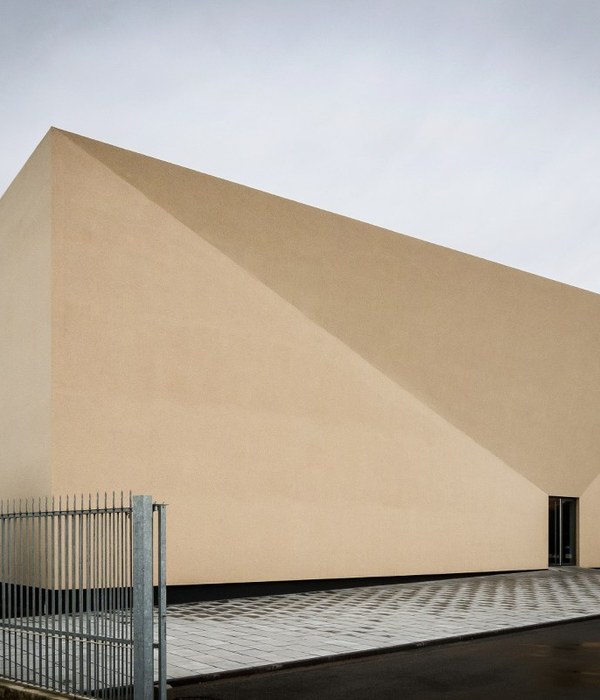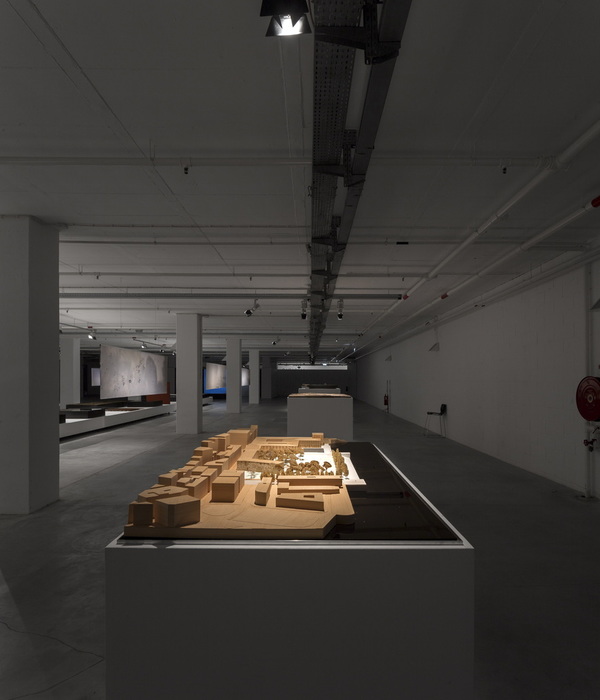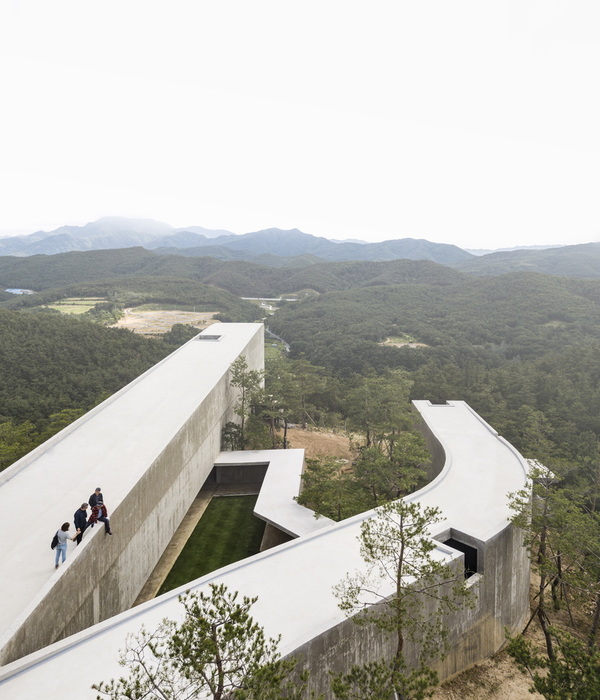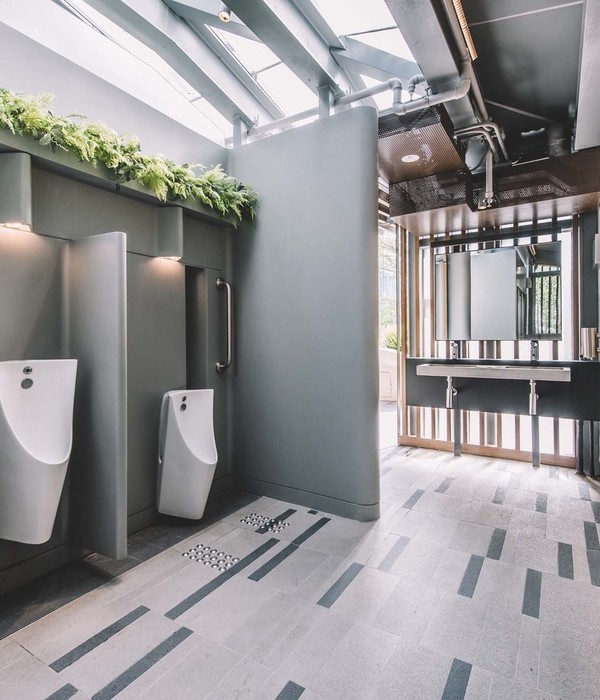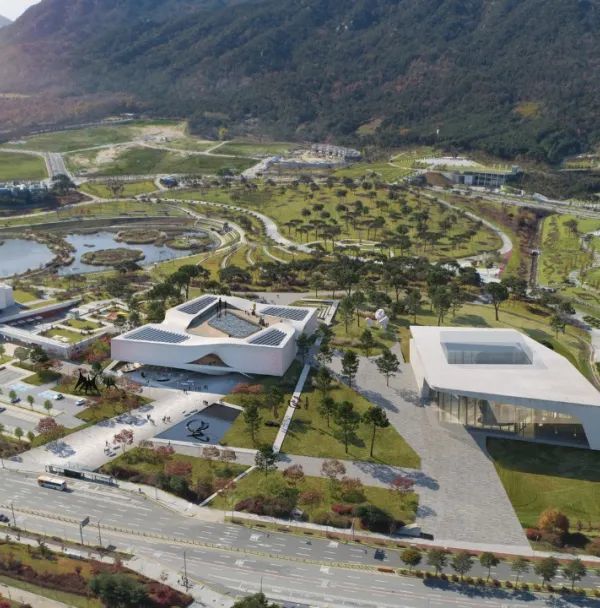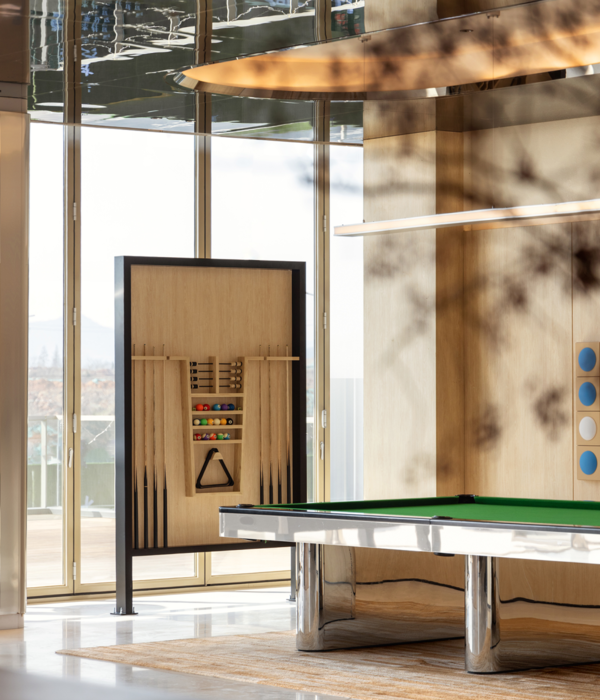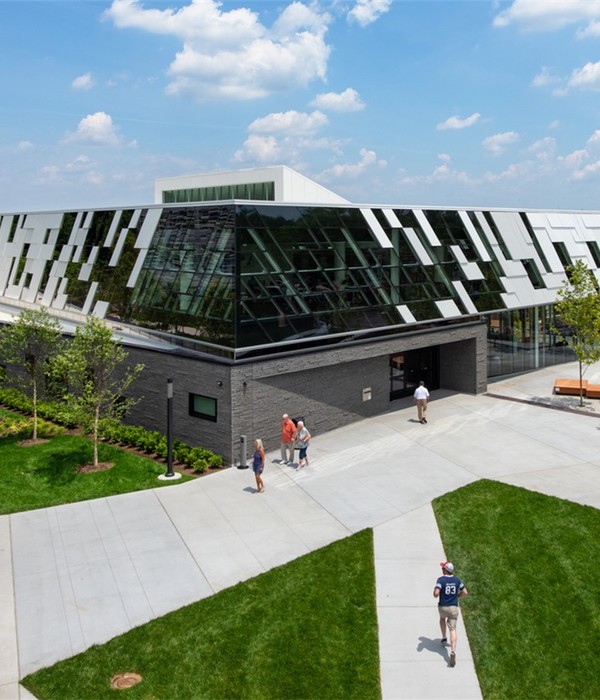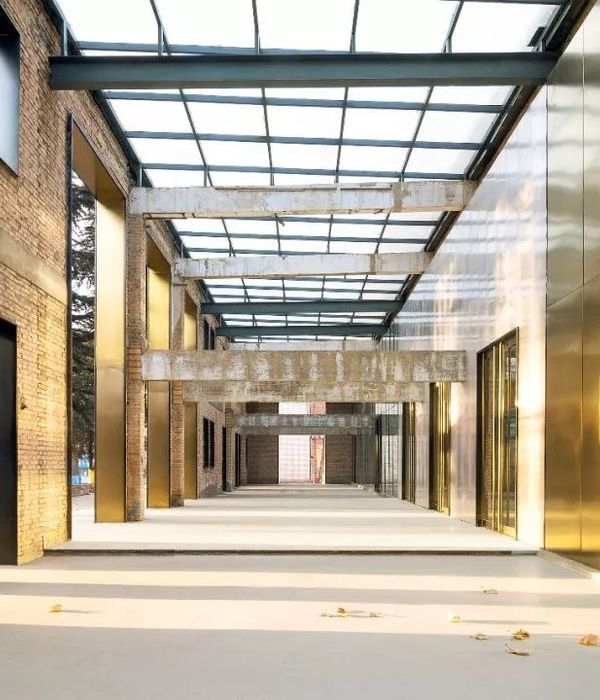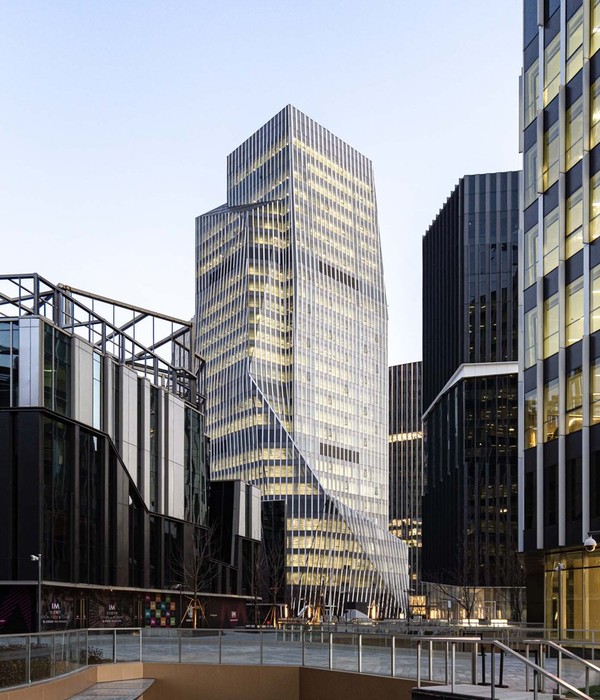“人死了,他们不快乐”-建筑无法改变这一点。一个休息的地方,一个静默的空间:这是它仍然能提供的东西,尽管事实上,即使是石头也没有在更坚实的年代那样沉重,它们对永恒的信仰更加坚定,比如在萨卡拉,比如在吉萨。
© Mattias Hamrén
(Mattias Hamrén)
我们的最后一条路是不确定的。无论是教堂还是死神神殿,都不能为通往虚无或天使之路提供榜样。在赋予自由和必要性的过程中,马格里布清真寺的强度和质地最接近于完成这一任务:哥白塔广场(Piazza Coperta),它位于这座教堂的中间,许多人可以在那里聚集,但个体却被屏蔽;这是我们所有情感的催化剂。在这个房间里-5000年之久-有着光之首的柱子建立了我们唯一的参考:填充的粘土和太阳与它的光之间的宇宙学对比。
Our final road is uncertain. Neither church nor temple of the dead offer a model for the path to nothingness or angelhood. In lending shape to freedom and necessity, the intensity, the texture of a Maghreb mosque comes closest to meeting the task: a Piazza Coperta, a place in the middle of this cenotaph, where many can assemble and yet the individual is shielded; a catalyst for all our feelings. In this room – 5000 years young – the columns with their capitals of light establish the only reference left to us: a cosmological contrast between populated stacks of clay and the sun with its light.
© Mattias Hamrén
(Mattias Hamrén)
礼堂-两座50人,一座250人-只不过是一盒劈开的石头,正面被打开,变成了第二层狭长的玻璃外壳:逝去的灵魂、棺材、骨灰盒已经进入了光明的领域,现在与天空、云彩、树木融为一体。
The ceremonial halls – two for 50, one for 250 people – are simply boxes of split stone, set open-fronted into a second, slat-steered casing of glass: the departed soul, the coffin, the urn has gone before already, into the realm of light, is at one now with the heavens, the clouds, the trees.
© Mattias Hamrén
(Mattias Hamrén)
像其他建筑一样-波恩的博物馆和柏林的总理府也不例外-这座建筑反映了建筑师们的坚定意志。一块空洞无物,50米宽70米,地下深10米,高10米,一块石头,一块墓碑,坚持几个空间的材料一致性。如果路德维希·维特根斯坦(Ludwig Wittgenstein)所说的建筑“强迫和美化;没有什么可以美化的地方就没有建筑”,那么这个结构就会美化建筑的精髓,颂扬空间,庆祝光中墙壁的寂静。
Like no other building – the Museum in Bonn and the Chancellery in Berlin are no exceptions – this one reflects the unbroken will of the architects. A hollowed, jointless block 50 by 70 meters, 10 meters deep in the earth, 10 meters high above it, one stone, one grave-stone, insisting on the material consistency of its several spaces. And if there were a word of truth in Ludwig Wittgenstein's claim that architecture 'compels and glorifies; that where there is nothing to glorify there can be no architecture', then this structure glorifies the quintessence of architecture, celebrates space, the silence of walls in light.
{{item.text_origin}}


